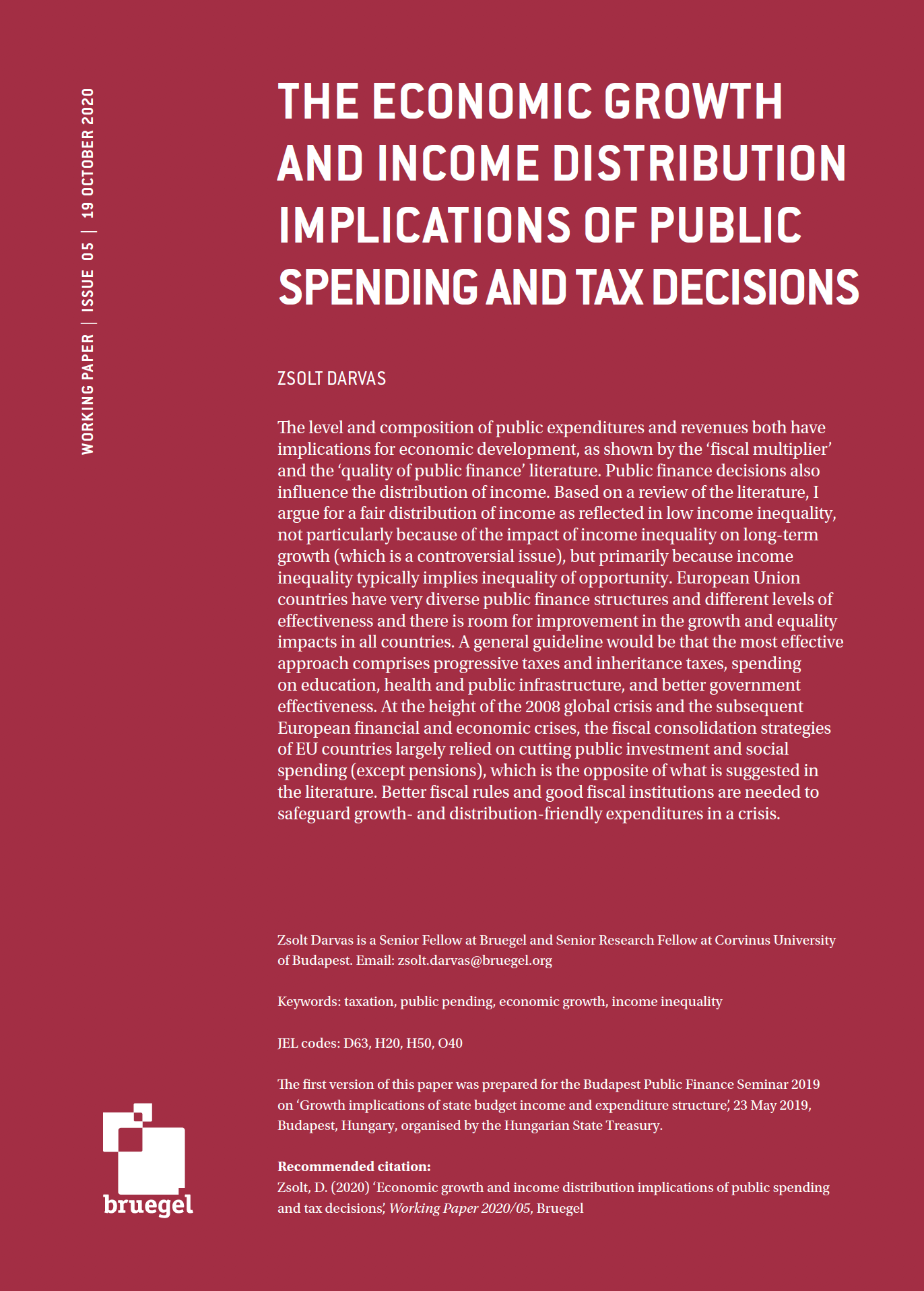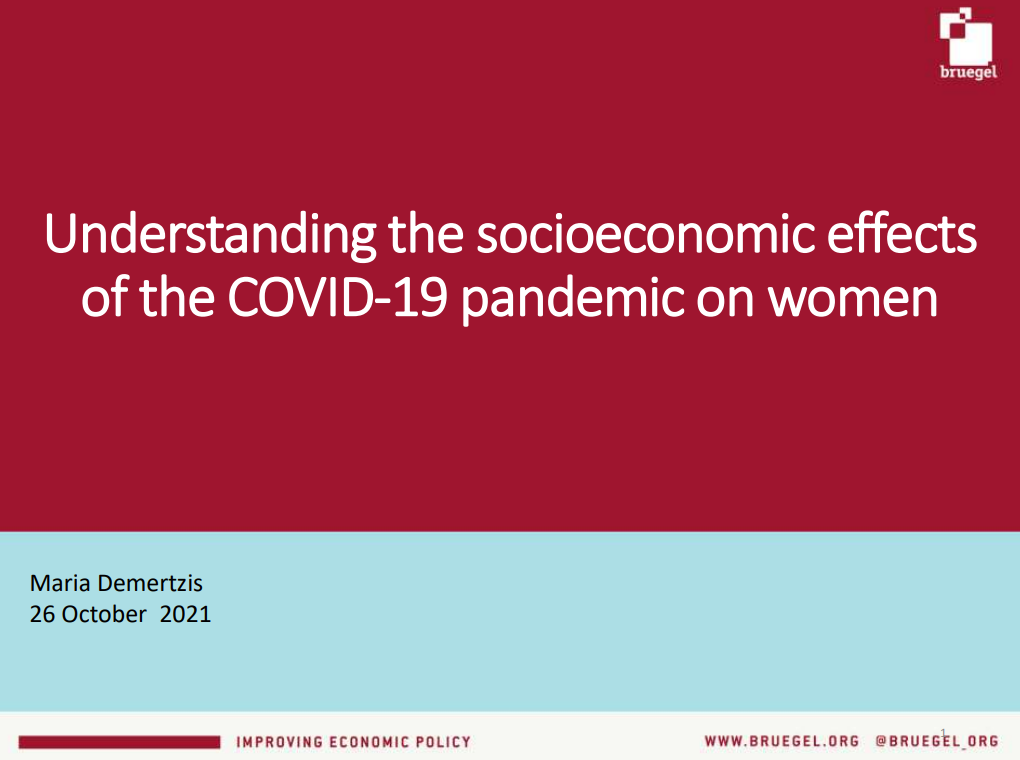Working Paper
The economic growth and income distribution implications of public spending and tax decisions
European Union countries can reduce inequality of opportunity through public spending and tax decisions. Broadly, the most effective approach includes progressive taxes and inheritance taxes, spending on education, health and public infrastructure, and better government effectiveness. Better fiscal rules and institutions also increase resilience against crises.
The level and composition of public expenditures and revenues both have implications for economic development, as shown by the ‘fiscal multiplier’ and the ‘quality of public finance’ literature. Public finance decisions also influence the distribution of income. Based on a review of the literature, I argue for a fair distribution of income as reflected in low-income inequality, not particularly because of the impact of income inequality on long-term growth (which is a controversial issue), but primarily because income inequality typically implies inequality of opportunity. European Union countries have very diverse public finance structures and different levels of effectiveness and there is room for improvement in the growth and equality impacts in all countries. A general guideline would be that the most effective approach comprises progressive taxes and inheritance taxes, spending on education, health and public infrastructure, and better government effectiveness. At the height of the 2008 global crisis and the subsequent European financial and economic crises, the fiscal consolidation strategies of EU countries largely relied on cutting public investment and social spending (except pensions), which is the opposite of what is suggested in the literature. Better fiscal rules and good fiscal institutions are needed to safeguard growth- and distribution-friendly expenditures in a crisis.
Recommended citation:
Darvas, Z. (2020) ‘The economic growth and income distribution implications of public spending and tax decisions’, Working Paper 2020/05, Bruegel















